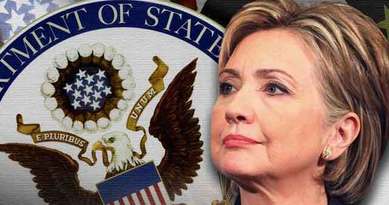
US Secretary of State Hillary Clinton meets today with Russian Foreign Minister Sergei Lavrov in Geneva. US-Russia relations are looking positive. Yesterday, NATO and Russia restarted relations after they were cut off over last summer’s Georgia conflict. This week, Russian President Medvedev turned down a proposal by US President Obama suggesting an exchange for a retreat in American plans for the eastern European missile defense shield in return for more cooperation from Moscow to deter Iran in its nuclear program. Yes – Moscow did turn Obama down, but that’s not all he said. Medvedev took his time to consider the deal and after rejecting the proposal, went on to say that Obama’s willingness to talk is a good thing, and a positive development compared to just 2 months ago when Bush was in power.
What’s clear is that Clinton, as an arm of the Obama administration, has opened up many opportunities for rising powers to work as partners with America. Examples:
So, Clinton’s meeting today with Lavrov will be telling. They have a lot to discuss, including missile sales to Iran, the Iranian nuclear program, Afghanistan, NATO expansion, and joint missile defense.
What I wonder is how the Obama/Clinton foreign policy team deal with other rising powers, specifically Turkey (sticking point – cross border raids on Kurds in northern Iraq), India (the gigantic India-US civilian nuclear program still hasn’t kicked in), and Brazil (we’re waiting to see what the US new Latin American policy really will be).